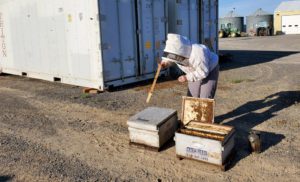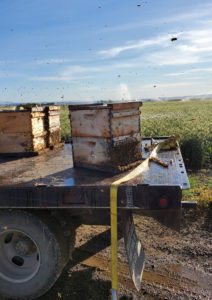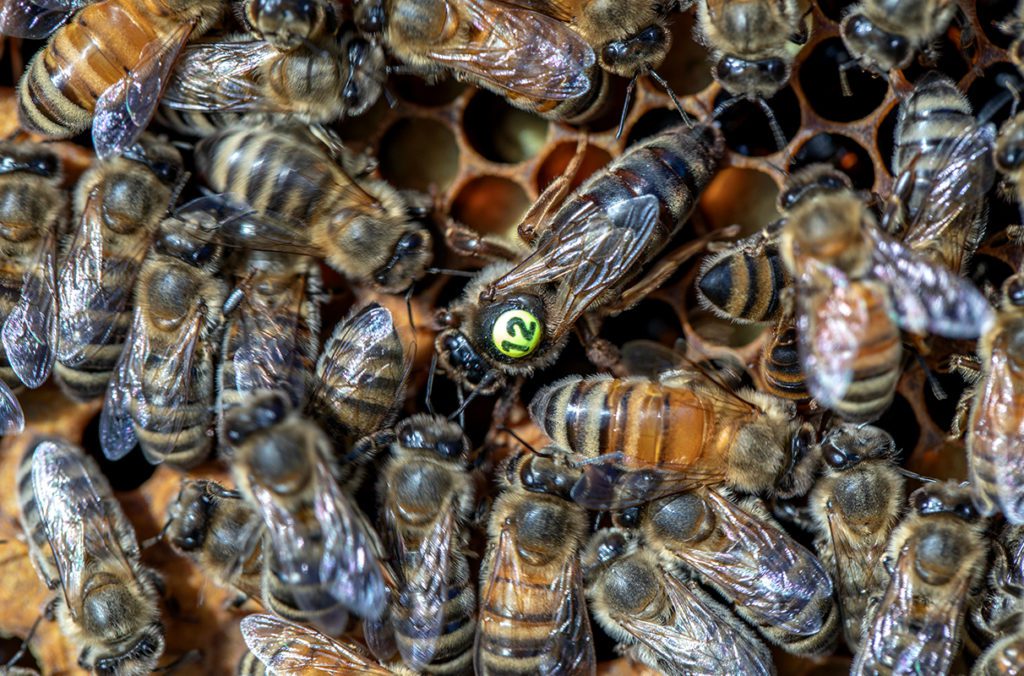Feb 28, 2023Queen banking could aid beekeepers
Keeping queen bees chilled in indoor refrigeration units can make the practice of “queen banking” — storing excess queens in the spring to supplement hives in the fall — more stable and less labor-intensive.


“Queen banking” may also help strengthen honeybee survival in the face of a changing climate, according to a Washington State University study.
In a paper published in the Journal of Apicultural Research, researchers compared queen banks stored in refrigerated units to those stored in the conventional way outdoors and an “unbanked” control group. They found that the queens stored at cooler temperatures had a higher survival rate and required less maintenance than those stored outdoors.
The study, and future potential refinement, could be another piece in the ultimate puzzle of reducing the loss of bee colonies each year, according to senior author Brandon Hopkins, an assistant research professor in WSU’s Department of Entomology.


“A lot of honeybee losses are queen-quality issues,” Hopkins said in a news release. “If we have a method that increases the number of queens available or the stability of queens from year to year, then that helps with the number of colonies that survive winter in a healthy state.”
In the beekeeping industry, queen producers often “bank” queens over the summer by storing them in small cages. Those small cages are then put into a large colony with many workers to care for the caged queens, with as many as 200 queens per bank. A bank of 100 queens has a value of more than $5,000, and producers may have 10 to 20 banks on hand.
For this study, the team prepared 18 banks with 50, 100 and 198 queens per bank. The refrigerated banks matched survival of the outside groups, and in the banks of 100, survival was higher, with 78% of queens surviving the six weeks of storage compared to 62% in the outdoor group. The queens in both groups were of the same quality, showing similar good health. The cooled queen banks also needed less maintenance.


Once queen producers meet that demand, they can’t just turn off queen production. Producers can bank excess queens to help meet the future needs of beekeepers, who often replenish their queen supplies after the summer.
Queens can’t be produced in hot temperatures, Hopkins said in the release. Banking keeps an inventory on hand for when demand returns in the fall.
Keeping a supply of queens available for beekeepers to purchase is growing increasingly difficult. The vast majority of U.S. queen producers are based in California, where rising temperatures and wildfires are becoming more common.
“We heard queen producers in California are having a difficult time banking queens when temperatures are over 100 degrees in the summer,” Hopkins said in the release. “It’s a little scary to be banking 80% of the country’s queen supply in a location prone to wildfires, smoke and high temperatures.”
The team found that in the refrigeration units, the bees fared well with just food and no human interference.















